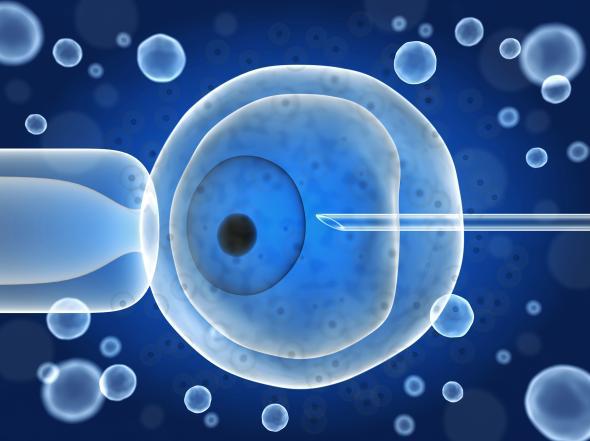Our latest Futurography unit focused on synthetic biology. We published articles on the regulatory status of the field, the possible militarization of the natural world, and even synthetic biology’s relationship to queer theory. But we’re also interested in what you have to say, so we’ve written up our survey on the topic.
One of the most immediate stumbling blocks in discussions of synthetic biology comes from the difficulty of defining what, exactly, the term means. Some Slate readers agreed that it might be worth trying to clarify what we’re talking about. “I would define synthetic biology as the engineering approach to biology,” one wrote, though he or she acknowledged that this framing could potentially “overlap with fields such as genetic engineering and metabolic engineering.” A few suggested that we should limit the term to attempts to create artificial life, while others argued that getting scientists to agree on what their field entails would likely be futile. Or as one reader put it, “Good luck! It’s like pornography, you know it when you see it.”
Readers listed a wide range of promising possible applications for synthetic biology. One proposed that “[g]ene drives to mitigate mosquito-born disease and invasive species” were the field’s best hope, while another pointed to “[m]any medical aspects, such as a possible cure for diabetes, and food applications that help resist crop diseases, aid food security.” Agricultural applications were popular with a few other readers as well, but many remained unconvinced of the field’s prospects. “There is so much hype and poor reporting on synthetic biology it is tough to know how much of the ‘promise’ is at all feasible,” one wrote, before adding, “I hope of course for some medical breakthroughs in areas like cancer or HIV treatment, but I’m not holding my breath.”
That attitude also resonated throughout many of the responses to our query about overhyped areas of the field: Numerous readers touched on the same issues that others had celebrated. In agriculture, for example, one suggested that synthetic biology “could be the cherry on top of conventional selection programs, not a replacement” for those efforts. Others questioned some of the field’s basic premises, such as the notion that we can work with DNA in same way that we do with computer code. Another argued, “The experimentation occurs so much faster than the understanding of the implications,” which encourages researchers to make claims that outstrip the actual capacities of their scientific pursuits.
Whatever the practical promise of the field, many readers felt that we should establish wholly new laws to regulate it instead of attempting to amend old ones. One suggested that we need a “paradigm shift” and proposed that we “[s]tart over from scratch, in the spirit of laws governing animal and crop development.” Taking a similar angle, another suggested that we should aim to make new regulations that are friendlier to smaller businesses, since technologies such as GMOs “are so heavily regulated that only large corporations can afford to take part.” Others, meanwhile, wrote that even if it would be better to establish new laws to regulate synthetic biology, doing so would be too difficult to pull off in practice.
Some offered similarly skeptical responses to our question about whether synthetic biologists should be able to patent organisms. “For anything to be patented, it needs to be a new, useful invention that isn’t obvious. I find it hard to imagine an ‘organism’ ever fitting this definition, but would not object to one being patented if it did,” one wrote. Some felt there might be an acceptable middle ground, as did one who wrote, “Pieces or organisms should not be patentable if they are modified from natural components. Methods patents should not be allowed for organisms.” Another argued synthetic biologists should be able to patent “only the specific traits they design. Intellectual property must be protected.”
As for the safety of synthetic biology, many readers indicated that they were concerned about the possibility of weaponized synthetic biology. Most of those who elaborated on their answers, however, suggested that they were only worried up to a point. “I think it would be difficult to make biological weapons that are more powerful than what we can do already,” one wrote. Another argued that we should concern ourselves more with non-proliferation than with preventing the technologies from being developed in the first place. And a third wrote, “I do not see it being used,” though he or she acknowledged that assumption might be “too optimistic.”
Fewer readers still were troubled by the idea of foods modified through synthetic biology. “I already have eaten food products that only exist thanks to biological manipulation—from cutting-edge R&D products to the cheese I eat almost every day,” one observed. Many others echoed this point, noting that very little of what we eat is free from some form of human influence. As one put it, “We have been using mutagenesis on crops for over a century.” Some did suggest that it would be worth taking a longer view and waiting to make sure new developments were safe. The majority, however, seemed willing to embrace the attitude of one reader who simply responded, “I look forward to it, yum!”
This article is part of the synthetic biology installment of Futurography, a series in which Future Tense introduces readers to the technologies that will define tomorrow.
